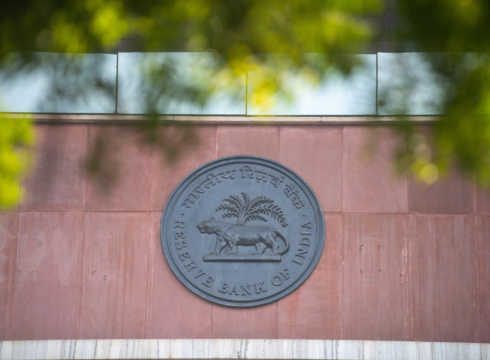SUMMARY
Crypto assets could be prohibited because of their ‘next to negligible’ real-life use cases and multi-nation regulatory oversight mechanism: RBI
RBI has again called cryptos a ‘Systemic Risk’ and increased its risk perception to 5.5 in November 2022, up from 4.4 in May 2022
This comes a day after it was reported that the government was planning to launch an awareness campaign amid rising concerns over crypto assets
Inc42 Daily Brief
Stay Ahead With Daily News & Analysis on India’s Tech & Startup Economy
The Reserve Bank of India (RBI) is pursuing various options at the global level to devise a common approach towards regulating or ‘possibly prohibiting’ unbacked crypto assets.
In its recently unveiled Financial Stability Report, the central bank said that developing a framework for global regulation of unbacked crypto assets was one of the priorities of India’s G20 presidency.
“… under India’s G20 presidency, one of the priorities is to develop a framework for global regulation, including the possibility of prohibition, of unbacked crypto assets, stablecoins and DeFi,” said the report.
Elaborating further, RBI pitched three options for regulating digital currencies. The report said that one way was to prohibit crypto assets and cited the rationale of ‘next to negligible’ real-life use cases and different regulatory oversight mechanisms across territories for such a move.
Another way, as per the report, was the application of ‘same-risk-same-regulatory-outcome’ principle, subjecting crypto exchanges to the same regulation applicable to traditional financial intermediaries and exchanges.
“A third option is to let it implode and make it systemically irrelevant as the underlying instability and riskiness will ultimately prevent the sector from growing. The third option, however, is fraught with risks as the sector may become more interconnected with mainstream finance and divert financing away from traditional finance with broader effect on the real economy,” said the report.
Citing the recent collapse and bankruptcy of crypto exchange FTX, RBI said that the space was marred by inherent vulnerabilities and that cryptocurrencies were highly volatile. The central also cited the examples of the recent prohibition of withdrawals of stablecoins by Binance and the TerraLuna as the defining moments of the global crypto space in 2022.
Reiterating its stance, the RBI called the turmoil in the crypto space one of the major risks that could potentially undermine global financial stability. The report also called cryptocurrencies a ‘Systemic Risk’ and increased its risk perception to 5.5 in November 2022, up from 4.4 in May 2022.
RBI conducts systemic risk surveys twice a year and captures various data from multiple sources to identify key sources of systemic risk to the Indian financial system due to both global and domestic macro-financial developments.
This comes a day after it was reported that the government was planning to launch an awareness campaign amid rising concerns over crypto assets. The campaigns will likely target small investors and will highlight the legal status and risks associated with cryptocurrencies.
Prior to that, RBI Governor Shaktikanta Das went on to say that the next financial crisis would occur due to private cryptocurrencies, in what was his sharpest statement on crypto in recent times.
The negative market trend has also put a spanner in the works for Indian crypto exchanges that have begun publishing their full proof of reserves to retain customers and increase transparency. Recently, CoinDCX published its full proof of reserves with an audited report to allay global fears which have gripped the industry.
As policy stakeholders gather around to devise a mechanism to deal with cryptocurrencies across the globe, it remains to be seen how that effort pans out. While India has made its paramount effort to push the G20 nations for a policy consensus on the matter, the outcome will depend on how other countries respond.
Meanwhile, the centre has left no stone unturned to crack down on the crypto space. From imposing 30% tax on profit from crypto investments to 1% TDS on sale of crypto assets, a slew of regulatory norms have made the space very unattractive.
As if that was not enough, raids on crypto exchanges such as WazirX, Vauld, CoinSwitch Kuber and many others for allegations ranging from money laundering to flouting forex norms have put the spotlight on the emerging industry.
While socio-financial reasons have guided Indian authorities till now, it continues to look for ways to blunt the outcome of a supposed major crypto meltdown.
Note: We at Inc42 take our ethics very seriously. More information about it can be found here.


